The first session of the Peking University Commercial Law Roundtable Forum was successfully held
Date:2018-01-15
On December 30, 2017, the first round of Beijing University Business Law Roundtable Forum was held in Beijing. The theme of the conference is "Developing a Commercial Code - A Global Impression of the Compilation of Commercial Code". The conference was organized by the Law School of Peking University, the China Enterprise Legal Risk Management Research Center of Peking University and co-organized by Jiangsu Taihe Law Firm.
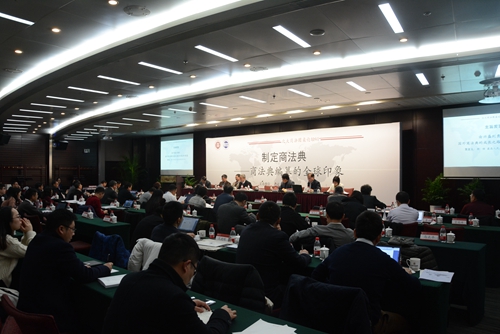
Prof. Jingyi Ye, Deputy Secretary of the Party Committee of Peking University, Deputy Director Sun Lijun of the Application Department of the Research Department of the China Law Society, Professor Guo Feng, Deputy Director of the Research Office of the Supreme People's Court, Professor Zhao Xudong of the Civil and Economic Law Institute of the China University of Political Science and Law, and Professor Zhu Ciyun of the Law School of Tsinghua University, Prof. Fan Jian from the School of Law of Nanjing University, Prof. Shi Tiantao from the Law School of Tsinghua University, Prof. Ye Lin from the Law School of Renmin University of China, Prof. Liu Kaixiang from Law School of Peking University, Prof. Zhou Linbin from Law School of Sun Yat-sen University, Prof. Zhao Wanyi from Civil Law School of Southwest University of Political Science and Law, Professor Zhou Yousu, a researcher of the Institute of Law of Sichuan Academy of Social Sciences, Professor Lei Xinghu of the Law School of Zhongnan University of Economics and Law, Professor Li Jianwei of the Civil and Economic Law School of the China University of Political Science and Law, Professor Jiang Daxing of the Peking University Law School and so on. Nearly 80 experts and scholars from business law theory and practice circles across the country attended the conference.
The first unit of the forum was “The Speech and Keynote Speech of the Conference”, presided over by Prof. Zhao Xudong, Institute of Civil and Commercial Economics of China University of Political Science and Law. Prof. Jingyi Ye, deputy secretary of the party committee of Peking University, and Sun Lijun, deputy director of the application department of the Research Department of the China Law Society respectively gave speeches at the forum. Prof. Jingyi Ye expressed warm welcome to the guests on behalf of the organizers and pointed out that the theme of the forum was “Developing a Commercial Code - a Global Impression of the Compilation of Commercial Code”. This topic allowed everyone to jointly explore and formulate a global perspective. The issue of the Commercial Code does not only reflect the thinking of the times but also reflects the local consciousness. It is also open and international. Deputy Director Sun Lijun first expressed his support for the convening of this forum on behalf of the China Law Society. He pointed out that this forum is very important for organically combining the advanced theories of the world with Chinese characteristics and Chinese experience, for the development of the socialist market economy and the implementation of the strategy of ruling the country in accordance with the law and for seeking true symptomatic approach to the system design and solution.
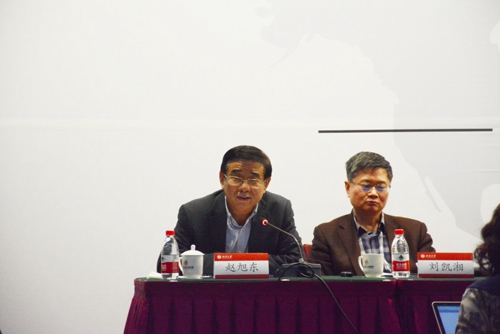

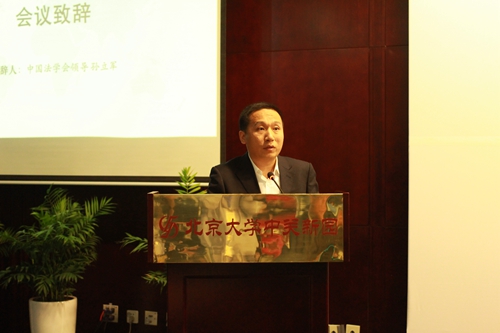
Subsequently, the keynote speeches were made by the experts and scholars of the first unit. Prof. Jian Fan from Nanjing University School of Law, with the title "Forward-looking research on the formulation of the Chinese Commercial Code," from why the development of commercial codes, the historical development trend of commercial law, the problems faced by contemporary Chinese commercial law, the path of China's Commercial Code, etc. A forward-looking analysis of the formulation of China's commercial code was carried out. Professor Guo Feng, deputy director of the Research Office of the Supreme People's Court, explored the development of foreign commercial codes from the historical point of view and proposed the development of commercial codes, with the theme "From prosperity to decline: the growth path of foreign commercial codes and the mirror of our country". It is best to look at the effect of the Civil Code first. Prof. Liu Kaixiang of Peking University School of Law published a keynote speech titled “Analysis of the Reasons Against Commercial Code”, “Commercial law is a special law of civil law and thus does not require a commercial code”, and “Commercial law does not require a commercial code”. “The formulation of a commercial code is already an outdated practice and now does not require a commercial code” to refute the reasons for opposing the commercial code, and pointed out that it is possible to formulate the general rules of commercial law first, but in the end it still needs to formulate a commercial code. Prof. Shi Tiantao of the Law School of Tsinghua University, with the title of "Rediscovery of Commercial Relations and the Mission of Today's Commercial Law," believes that today's business law should transfer its main energy from the adjustment of traditional commercial relations to the adjustment of financial and commercial relations and use it as today's The basic orientation of commercial law. Zhou Yousu, a researcher from the Sichuan Academy of Social Sciences Law Institute, commented on the above-mentioned scholars' speeches in the peace talks section, and responded to the issue of “codification” in the International Commercial Code. In the emergence stage, an all-encompassing, large-scale commercial code should not be established, but rather a commercial rule.
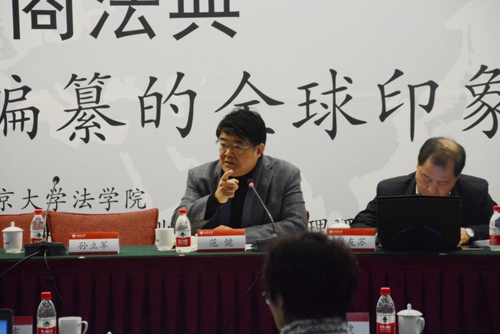
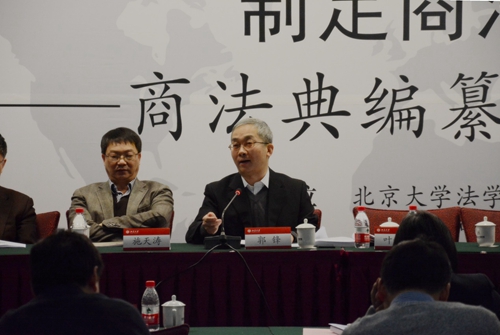
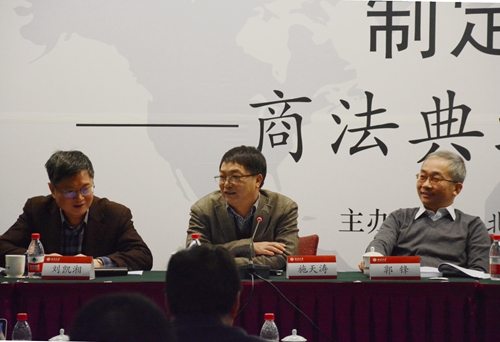

The theme of the second unit of the forum is "The Global Destiny of the Commercial Code." It was chaired by Prof. Zhu Ciyun of the School of Law of Tsinghua University and Professor Zhao Wanyi of the Civil and Commercial Law Institute of Southwest University of Political Science and Law. A total of three scholars gave keynote speeches. Researcher Zou Hailin of the Institute of Law of the Chinese Academy of Social Sciences gave speeches under the title “How to Understand the Path to the Codification of Commercial Law”, “Is there any distinction between the people and the business in China”, “What is the relationship between civil law and commercial law”, and “The political motive of codification of commercial law? "and other issues, and put forward that to propose the codification of commercial law will inevitably need to pull out the content of commercial affairs in the current civil code, the result is a deconstruction of the current general civil code. Prof. Wang Yong of the Civil and Commercial Economic Law School of China University of Political Science and Law published a keynote speech entitled “Issuing the ‘General Principles of Commercial Law’ instead of the ‘Commercial Code’”, put forward that the proposed formulation of a commercial code is of great significance to China's supply-side reform. China needs a commercial code centered on corporate law. Prof. Jiang Daxing of the Law School of Peking University proposed that the main purpose of this forum is to promote pragmatic research on the issue of commercial law and to continuously promote the formulation of the Commercial Code, and to give a speech on the topic of the “World Map of the Commercial Code”. Professor Jiang conducted a comprehensive study of the formulation of commercial laws in 195 countries and regions around the world, analyzed the influence of factors such as geography, economy and history on the rise and fall of the Commercial Code, and proposed that China should establish a commercial code, but it does not oppose the formulation of a general rules of commercial law. In the talks, Prof. Lei Xinghu of Law School of Zhongnan University of Economics and Law and Prof. Yu Ying of Jilin University School of Law gave a wonderful summary and response to the above statement.
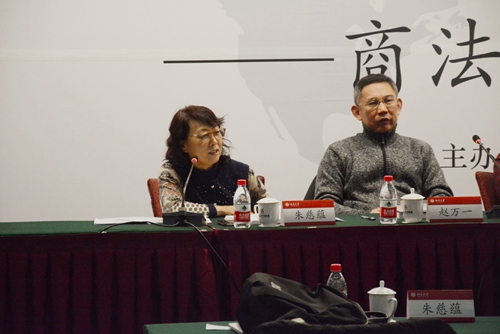
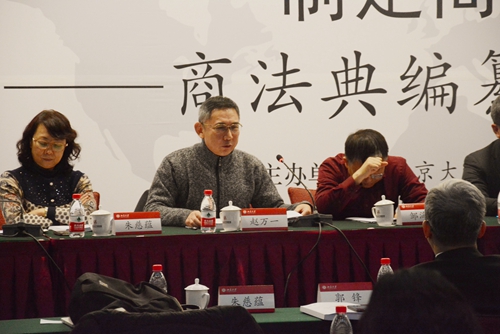
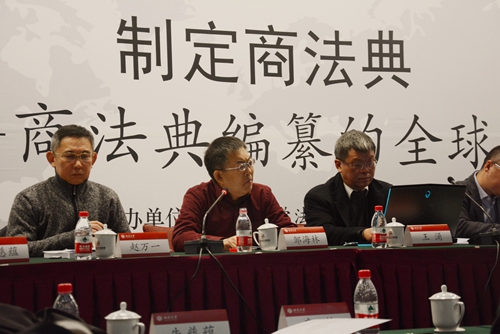
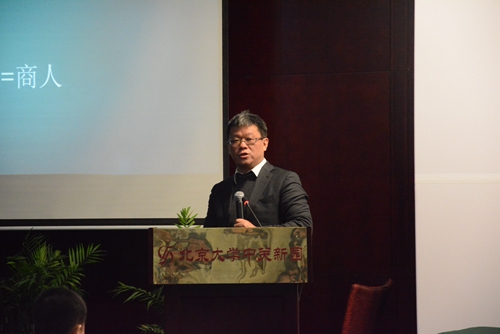
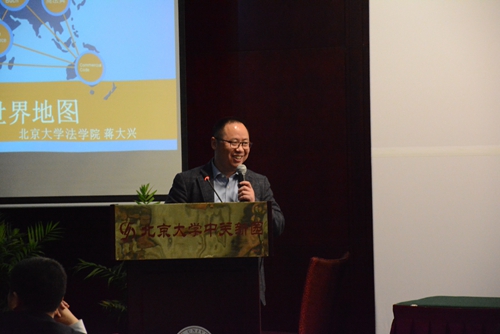
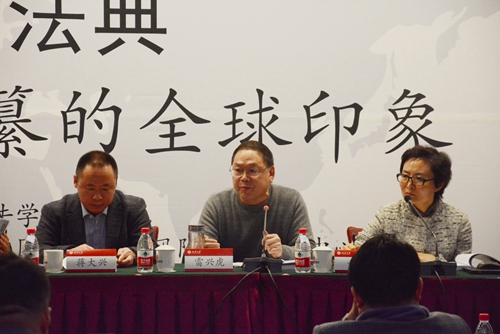

The theme of the third unit of the forum is “Impression of the Commercial Law Code of the Anglo-American Legal System”, which was hosted by Professor Ye Lin of the Law School of Renmin University of China and Professor Leng Jing of the International Finance and Law Faculty of East China University of Political Science and Law. Professor Fu Qiong from the Law School of Jilin University published a keynote entitled "Reality and Dreams of Commercial Code". He suggested that commercial law is an independent department. There are two different topics that should be stipulated in the General Principles of Commercial Law or the Commercial Code. The theoretical study of the Commercial Code is of significance, but in reality, the General Rules of Commerce are more likely. Zhao Lei, a researcher at the Institute of Law of the Chinese Academy of Social Sciences, published a keynote speech titled “Rethinking the Legislation of Commercial Affairs—Rational Starting from the Formal Reasons of Commercial Law”. He suggested that laws and regulations on commercial law should be treated with calmness, in the formal sense, the extrinsic codification may not be of much significance. More importantly, it is inherently systematized to deal with the needs of commercial activities and commercial dispute resolution. Associate Professor Shen Zhaohui of the Law School of Tsinghua University spoke on the topic of "Law Realism and the United States Commercial Code." He pointed out that one of the UCC's successful experiences was to use the legal realism approach under the influence of Llewellyn. To complete the codification of commercial law, this method of legal realism is clearly reflected in the formulation process of UCC, contract interpretation, and contemporary UCC teaching. Lecturer Jin Xiaowen from Law School of Beijing Foreign Studies University gave a speech titled “Commercial Uniformity of Commercial Code: Taking the Uniform Commercial Code as an Mirror” to analyze the legalization and legal operating mechanism of American commercial law, and proposed the legislative style of the United States. And the legislative system may not be suitable for our country, but its collectively thought-provoking legislative model, bold inheritance and innovative ideas can be used for reference. Prof. Ge Weijun, School of Law, Shanghai University of Finance and Economics, Associate Professor Zhao Yu, National Prosecutor’s College, and Associate Professor Chen Ruoying, School of Law, Peking University, held talks.
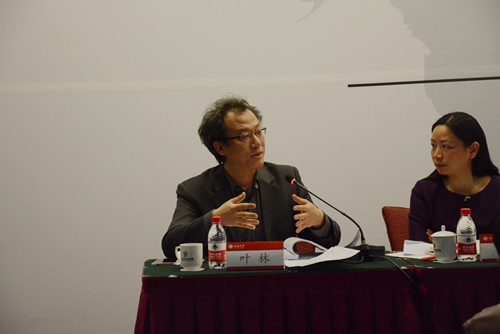
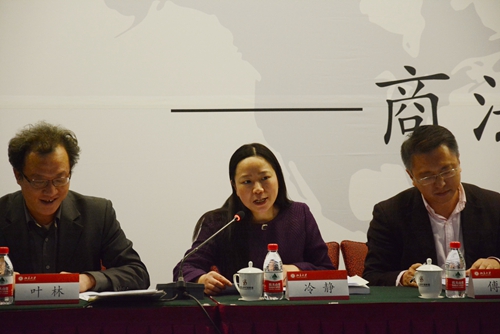
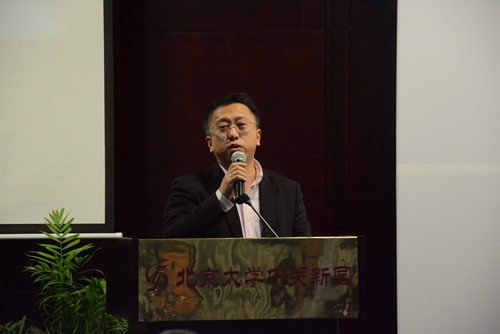

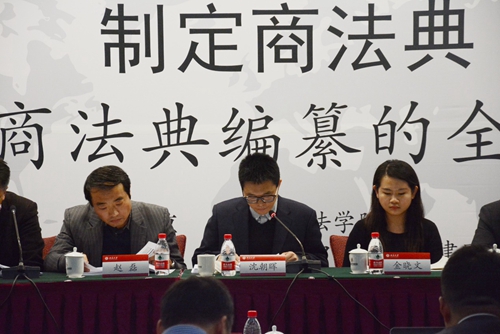
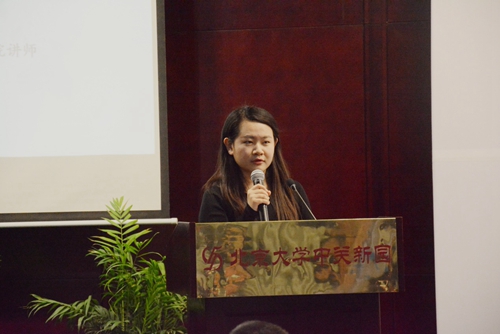
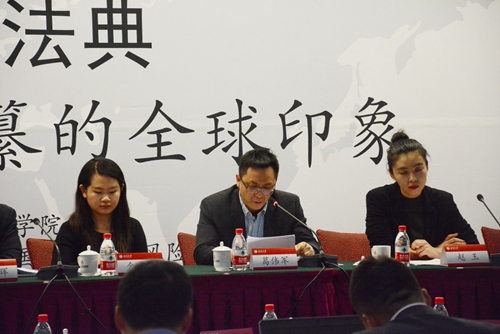
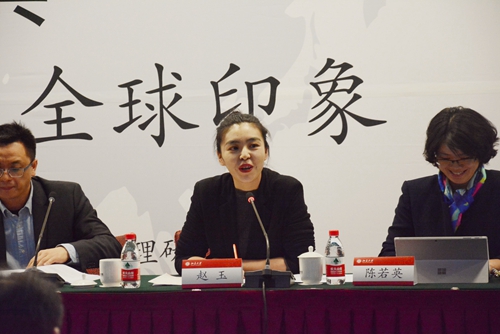

The theme of the fourth unit of the forum is “Impression of the Civil Law Code of Business Law”, hosted by Prof. Guan Xiaofeng, School of Civil and Commercial Economics, China University of Political Science and Law, and Prof. Zhang Wei, Chongqing University Law School. Prof. Cui Wenyu from Law School of Shanghai University gave a speech entitled “The Power of the Facilitation of Commercial Law - Academic Politics, Economic Environment, or Other?”. Professor Cui responded to the question of “emptiness of the Commercial Code” by sorting out the history of the development of the Japanese and Korean Business Code. He also believed that the formulation of the Commercial Code had a lot of chance, and to a large extent it would be influenced by external factors. China should also in accordance with the external environment of the country, we tailored our country’s commercial law system. Associate Professor Ding Yong of the International Finance and Law Faculty of East China University of Political Science and Law gave a speech entitled “The Historical Process of the Establishment of the German Commercial Code”. He discussed the historical process of the formulation of the German Commercial Code and the distinction between civil and commercial law in the German legal profession in the 19th century. A useful review has been conducted, and the standard issue of the separation of legislation from civil and commercial legislation in the form of German legislation and theory that has not been resolved so far is also the most difficult problem to be solved in the future when China formulates the “Commercial Code” or the “Commercial General Principles”. Associate Professor Chen Meiying of the School of Economic Law of East China University of Political Science and Law conducted a speech titled "The Making and Studying of the "Japan Commercial Code" - Inspection and Evaluation", and conducted a useful review of the motivation, formulation, implementation and modification of the drafting of the Japanese Commercial Code. to sum up. Prof. Xu Qiangsheng of Henan University of Economics and Law gave a speech on the title of “The decline of the traditional commercial code and China's future commercial code.” He believed that the reason for the decline of the traditional commercial law is the continual expansion of commercial law and the gradual inclusion of traditional commercial law into general private law. The current and ongoing civil code has basically covered the main content of commercial law. The future should be that civil law follows commercial law rather than commercial law and civil law. Xia Xiaoxiong, deputy researcher of the Institute of Law of the Chinese Academy of Social Sciences, who spoke on the topic entitled "Uniformization and Codification of Commercial Law in Africa", combed the background and progress of the unification of African commercial law, and introduced and analyzed Africa's "General Law on Commercial Law". After the speeches, Prof. Xu Defeng of the Law School of Peking University and Professor Yang Dong of the Law School of Renmin University of China conducted wonderful comments.
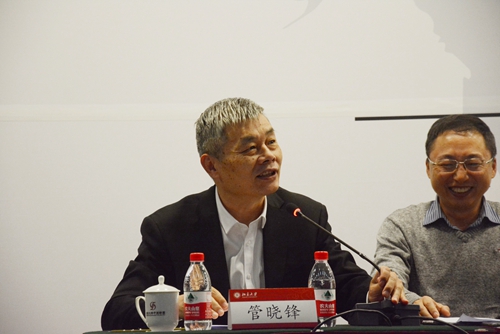
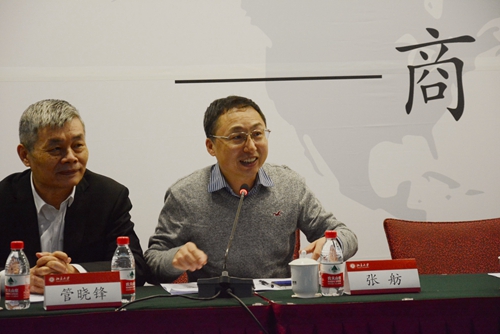
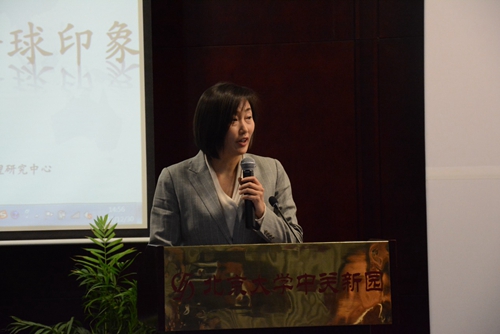
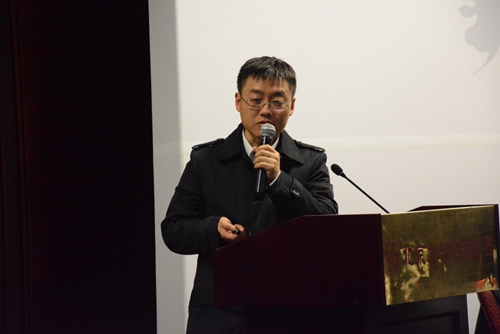
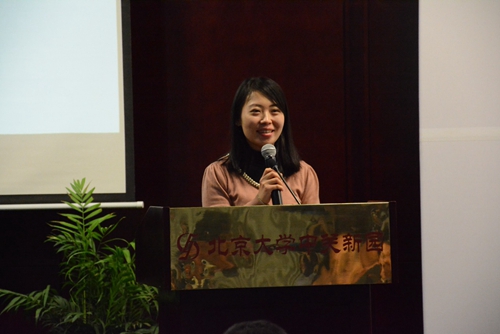
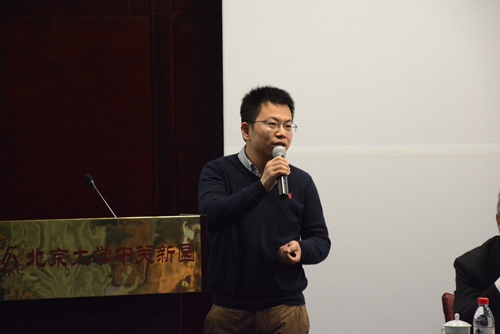
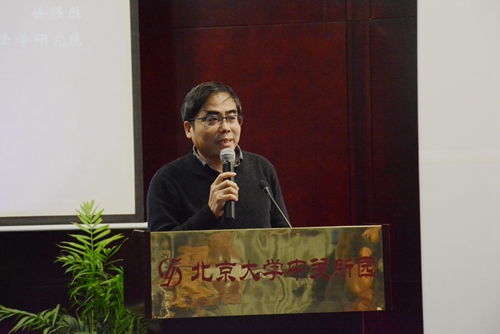
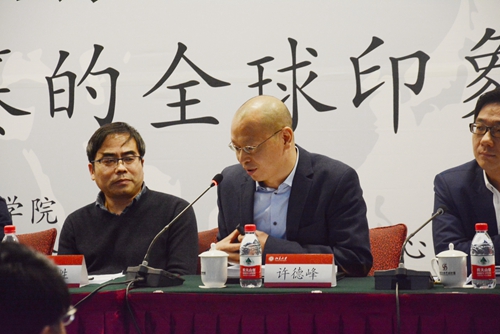
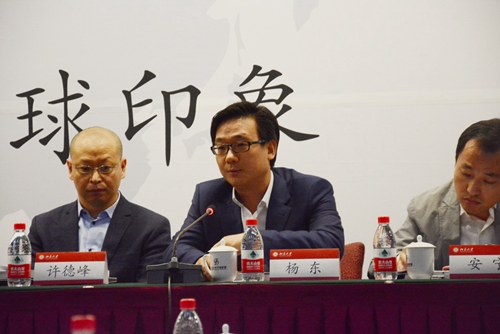
The theme of the fifth unit of the forum is "The Future Prospects of China's Commercial Code", which is chaired by Prof. Zhou Linbin of the Law School of Sun Yat-sen University and Prof. Ji Ligang of the Law School of Fudan University. Professor Qian Yulin from the East China University of Political Science and Law’s School of Economics is entitled “The Revival of Commercial Law in the Civil Code Era”, He proposed that the compilation of the civil code is a new opportunity for the development of commercial law. The civil code system leaves room for commercial legislation, and the fragmented commercial single line law needs to be re-integrated. The major issues in the future of commercial legislation research may be on the scope of commercial law and knowledge systems, the construction of theoretical systems and discourse systems. Prof. Cao Xingquan of the Civil and Economic Law School of Southwest University of Political Science and Law gave a speech on the topic of “The Supply Path of Commercial Customary Law Source Priority Rules.” He pointed out the current state of the “rule of inferiority behind the law” in Article 10 of the “General Principles of Civil Law”, and the theory of commercial affairs. The analysis of the functional carrying of the “Commercial Customs Exceeding Civil Law” rule, the predicament of the judicial route, and the possible limitations of the civil code route suggested that the requirements of the Commercial Code should be put forward and that commercial judgments and general commercial law or special requirements should be respected. Professor Lu Laiming from the Beijing University of Commerce and Industry Law School addressed the topic “Construction of Commercial Rights System from the Perspective of Codification”. He believes that the core element of rights is the key to the vitality of Codex. The difference in the value orientation of civil law and commercial law determines the commercial rights in function. There is independence and particularity in the future. In the formulation of the future commercial code, we should pay attention to the establishment of the concept and system of commercial rights. Professor Li Jianwei of the Civil and Commercial Economic Law College of China University of Political Science and Law undertook a speech entitled “Developing Historical Significance and Contemporary Value of Commercial Code”. He pointed out that there existed a tradition of suppressing business in our country’s history, leading the merchant to never become a historical protagonist in our country. The historical significance of the Commercial Code is to supplement the history, and the contemporary value of the commercial law is to respond to the concerns of the whole society, the party, the government, and the people. It has legislated nearly 90 million merchants for their correct name. Professor Wang Jianwen of the Humanities and Social Science Academy of Nanjing University of Aeronautics and Astronautics spoke on the topic “China’s time and opportunities for the establishment of a commercial code”. He believes that China is moving into a new era and should put forward a new theory of commercial law based on the practice in China. Operational behavior to build China's theory of commercial law, and based on this as a basis for the formulation of new rules (General Rules of Commercial Law, etc.), and then strive to formulate our commercial code in the middle of this century. Prof. Wang Qingsong of the Civil and Economic Law School of Southwest University of Political Science and Law, Associate Professor Zhao Qing of the School of Law of North China Electric Power University and Associate Professor Liang Peng of the China Youth Politics Institute commented on the above remarks.
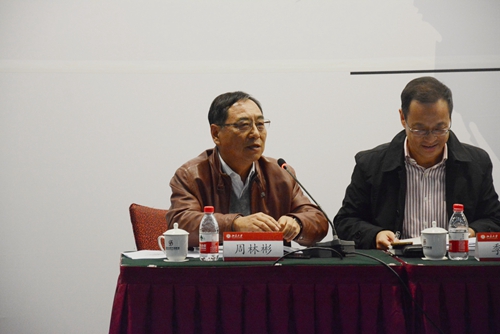
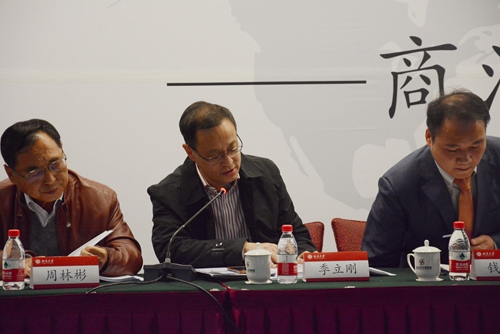
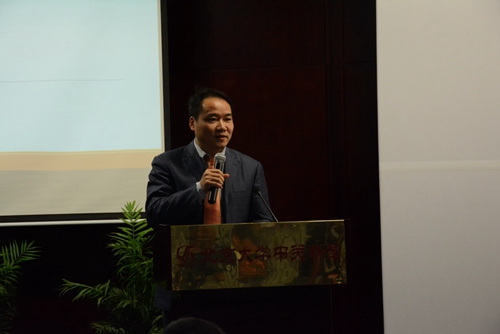
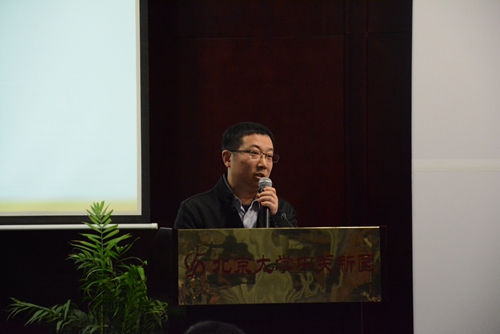
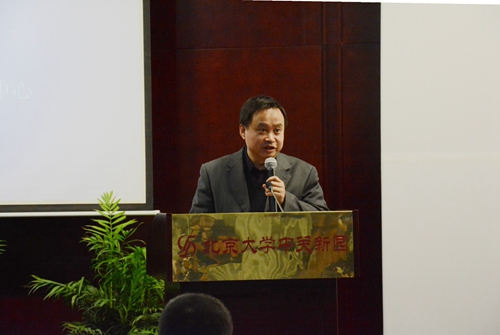
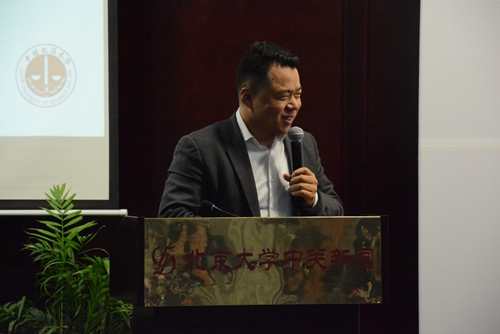
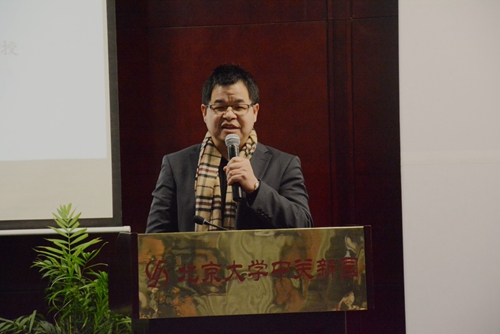
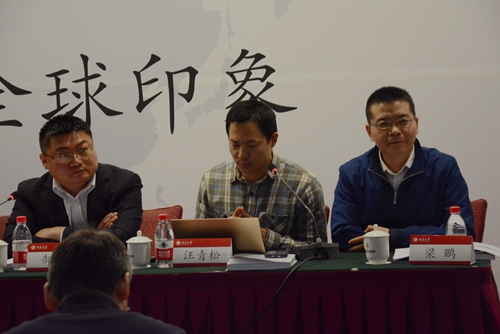
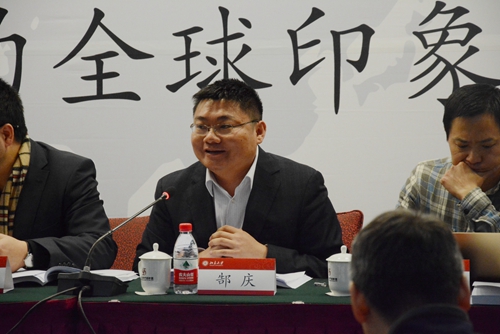
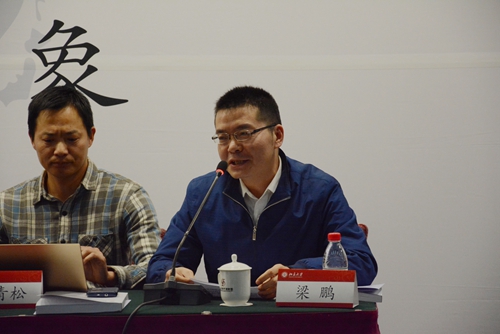
The theme of the sixth unit is “Commercial and Commercial Law in the Eyes of Judges”, presided over by Judge Zhou Lunjun of the Third Circuit Court of the Supreme People's Court and Professor Wang Jianwen of the Humanities and Social Sciences Academy of Nanjing University of Aeronautics and Astronautics. The speech of Judge Li Zhigang, the Civil Tribunal of the Supreme People's Court, was entitled “Three-dimensional Perspective of Legal Adjustment of Commercial Relations”. He analyzed the legal adjustment of commercial relations from the three-dimensional perspectives of the separation of civil and commercial divisions, judicial and administrative law enforcement, and the codification of commercial law. The reason for the distinction between civil and commercial is that the fundamental values are different. The commercial law (contract validity) is inconsistent with the commercial supervision law (administrative punishment). The Chinese commercial legislation should adopt a functional perspective, and the commercial law and practice circles should be responsible for the scientific development of Chinese commercial legislation. Judge Chen Ke of the Second People's Court of Shanghai Higher People’s Court made a speech entitled “Coordination of the Elements of Civil Law and the Elements of Commercial Law—A Judicial Interpretation of Corporate Law”. He proposed two pairs of contradictions intertwined by judicial interpretation of company law, namely, the autonomy between shareholders' autonomy and corporate group's will through the three pairs of relationships between capital democracy and equality protection, exercise and restriction of shareholder rights, and company autonomy and control. Contradictions between judicial judgments and business judgements. The statement made by President Liu Jiangong of the Central People's Court of the Higher People's Court of Jiangsu Province, entitled "Technical Needs of Commercial Cases Judging on Commercial Law," he pointed out that commercial issues such as commercial agency issues, account book-related cases, and business issues are difficult to solve because of civil law trials. The root cause of these problems is the organization of commercial entities. This is where the future of commercial law or commercial codes should focus. Vice President Tang Yingying of the People’s Court of Haidian District, Beijing, addressed the topic of “Related Issues in Commercial Judicial Thinking.” She pointed out that the relationship between business logic and legal logic clarifies the significance of the judge’s judgment and the business logic. It analyzes the definition and relationship of legal logic, the concrete manifestation of conflict, and the path of dissolving the two logical conflicts. After the keynote speech, Professor Liang Shangshang of the Law School of Tsinghua University, Vice President Duan Xiaojuan of the Civil Trial Division of the Higher People's Court of Jiangsu Province, and Associate Professor Yang Lan of the Civil Law School of Southwest University of Political Science and Law summarized and commented on the above statement.
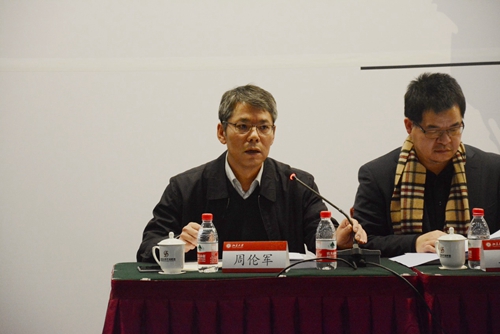

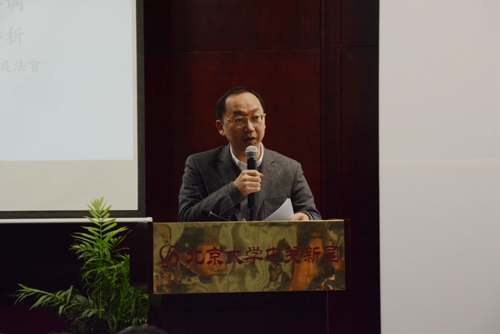
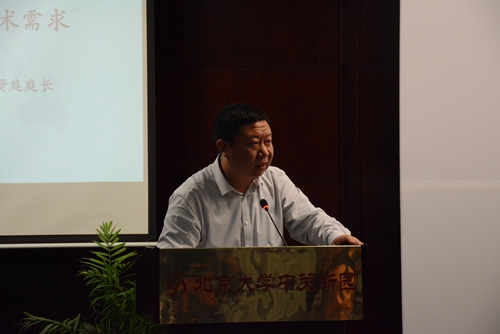
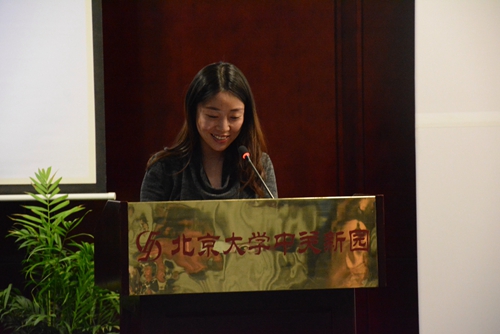
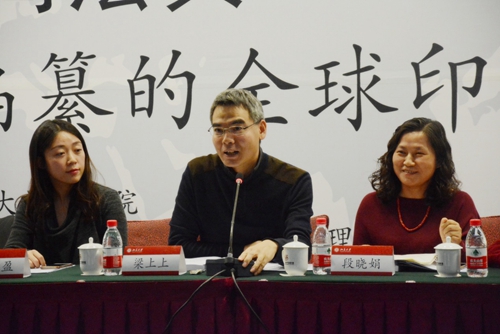
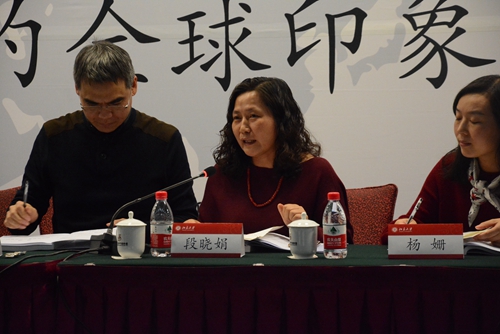
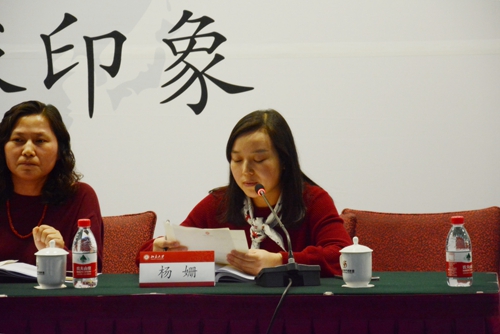
After the completion of each unit, Professor Li Jianwei of the Civil and Commercial Economic Law College of China University of Political Science and Law, Professor Qian Yulin of the School of Economic Law of East China University of Political Science and Law, and Professor Liu Kaixiang of the School of Law of Peking University made a wonderful summary of the forum. In the end, Prof. Liu Kaixiang once again thanked the guests on behalf of the organizers for their contributions. He felt that the discussion in this forum was very enthusiastic and yielded fruitful results, reflecting the sense of mission of the guests. Prof. Liu Kaixiang announced that the theme of the Peking University Business Law Roundtable Forum next year is related to “business conduct” and hoped all the distinguished guests will actively study and write an article. Welcome everyone to meet at the next forum.
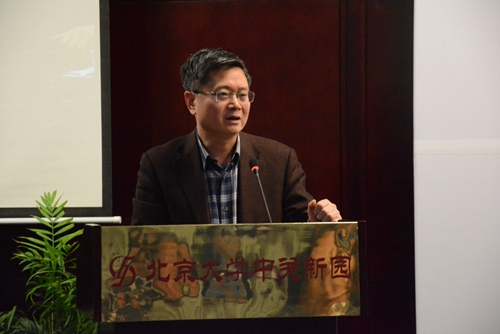
Translated by: Wang Mi
Edited by: Wang Chenhuan



